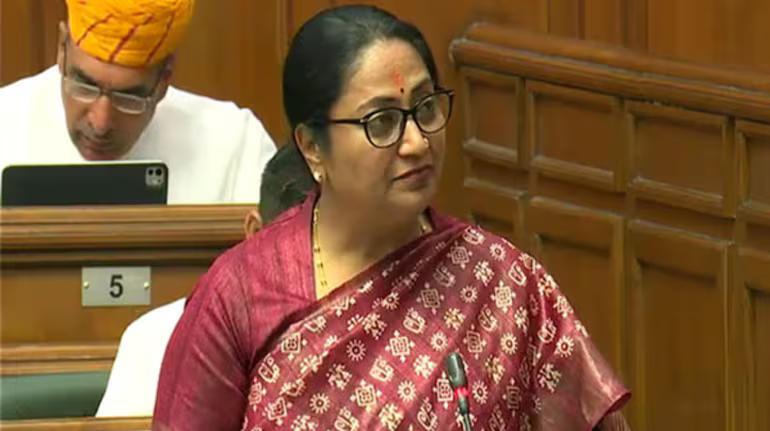
All School Buses Should Go Electric, Says Delhi CM Rekha Gupta
Air pollution has become a major concern in India, particularly in the national capital of Delhi. The city’s air quality has been consistently deteriorating over the years, posing a significant threat to the health and well-being of its residents. To combat this issue, the Delhi government is taking various initiatives to reduce pollution levels. Recently, Delhi Chief Minister Rekha Gupta flagged off electric buses for students of Sardar Patel Vidyalaya, emphasizing the need for school buses to switch to electric vehicles.
In her statement, CM Rekha Gupta highlighted that school buses are a significant contributor to air pollution in Delhi, with thousands of such buses operating on the roads. She emphasized the importance of transitioning these buses to electric vehicles to help curb pollution. According to the Chief Minister, “We are taking several steps to curb pollution in Delhi. School buses form a large segment and thousands of such buses run on roads. We want that school buses should also go electric.”
The initiative to switch school buses to electric vehicles is a significant step towards reducing air pollution in Delhi. School buses are a crucial part of the daily commute for thousands of students, and the pollution they emit can have a significant impact on their health and well-being. By switching to electric vehicles, the Delhi government can not only reduce air pollution but also promote a cleaner and healthier environment for its citizens.
The benefits of electric school buses are numerous. For one, they produce zero tailpipe emissions, reducing greenhouse gas emissions and air pollution in the city. Electric buses also have lower operating costs compared to traditional diesel buses, which can result in significant savings for the government. Additionally, electric buses require less maintenance, as they have fewer moving parts and do not require regular oil changes.
Furthermore, the transition to electric school buses can also promote sustainable development and contribute to the country’s goal of achieving a low-carbon economy. Electric vehicles are a key component of this goal, and the Delhi government’s initiative can serve as a model for other cities and states to follow.
However, there are some challenges associated with switching to electric school buses. One of the major concerns is the availability of charging infrastructure. While charging infrastructure is becoming increasingly available, it is still limited in many parts of the city. To address this issue, the Delhi government will need to invest in the development of a comprehensive charging infrastructure network.
Another challenge is the high upfront cost of electric buses. While electric buses have lower operating costs in the long run, the initial cost of purchasing an electric bus is higher compared to a traditional diesel bus. To make electric buses more affordable, the Delhi government could offer incentives or subsidies to schools and bus operators to encourage the adoption of electric vehicles.
Despite these challenges, the benefits of switching to electric school buses far outweigh the costs. The Delhi government’s initiative is a significant step towards reducing air pollution in the city and promoting a cleaner and healthier environment for its citizens. As the country continues to grapple with the issue of air pollution, it is essential that governments at all levels take proactive steps to promote the adoption of electric vehicles.
In conclusion, the Delhi government’s decision to switch school buses to electric vehicles is a welcome move towards reducing air pollution in the city. The benefits of electric school buses are numerous, and the initiative can serve as a model for other cities and states to follow. While there are some challenges associated with switching to electric school buses, the benefits far outweigh the costs. It is essential that governments at all levels take proactive steps to promote the adoption of electric vehicles and reduce air pollution in their cities.






